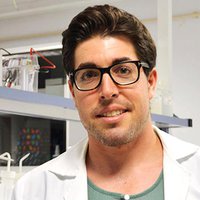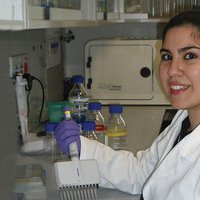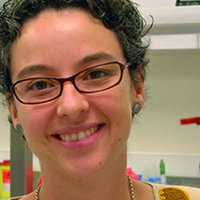“There have been a lot of taboos about psychiatric diseases,” says Feng Zhang. “People would think depressed people are not mentally strong enough. But that’s not true. In this and the next decade, we will learn much more about the mechanisms that lead to these neurological problems. And that will change our way of interacting with these people, and it will also change how we can treat them.”
Zhang is an assistant professor at MIT and one of only 11 core faculty members at the Broad Institute, a leading center of genomic research. He’s spent much of his brief but impressive career developing tools to understand how the brain functions, including what goes wrong in people with mental illnesses. As a graduate student at Stanford, he played a key role in developing optogenetics, which uses light to affect the behavior of living animals by controlling specific neurons; he then used the technique in mice to pinpoint brain cells that are associated with depression.
But truly understanding the genetics of mental illnesses will mean identifying the mutations causing the abnormal behavior. After getting his PhD, Zhang invented two new ways to “edit” animal genomes that were far cheaper and more effective than the existing technology. One method in particular, called CRISPR, promises to change how genomic engineering is done. It allows researchers to precisely snip out a short sequence of DNA so that they can substitute other genetic material or simply delete the sequence.
By inserting genetic mutations that others have linked to autism and schizophrenia into human stem cells that mature into neurons, Zhang is able to create brain cells with the specific genetic errors linked to those conditions. This makes it possible to study the abnormal cells directly: Do the neurons look different? Are there biochemical clues to what is going wrong? He has also engineered mice with the mutations to study how the changes affect behavior. Such research could not only help identify the causes of the disorders but suggest ways to identify and test drugs to treat them—and his genome-editing tools may even one day provide a way to “fix” the mutations.
Zhang has been interested in ways to “repair” diseases since he was in high school in Iowa, when he spent every afternoon working with a medical researcher at the Human Gene Therapy Research Institute, a part of Methodist Hospital in Des Moines. Though the gene therapies available at the time turned out to be too risky for widespread use in humans, Zhang never gave up hope of finding ways to directly fix the genetic mutations behind many diseases, using the increasing capabilities of genomic engineering. These days, bolstered by the success of his editing tools and other genomic advances, he is working to translate the technology into actual human therapies and exploring opportunities to start a company.
—David Rotman




